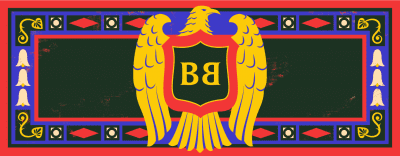The Golden Door: Far From Earth
When the travel ban was first announced, I was studying abroad in Berlin and preparing to fly to Boston for an undergraduate conference. I’m from Hong Kong, not from any of the banned countries, but emails sent from my American college’s International Student and Scholar Office warning us to minimize unnecessary travels outside of the United States still triggered my worries. I knew that this would not be the last of the changes that would affect my F-1 student visa status. The recent suspension of H1-B specialty worker visa’s premium processing, for instance, may affect me should someone in the U.S. try to hire me after I graduate. Having lived abroad for three years, I understood the lonely journey of leaving my own community to find better opportunities in a foreign country. I kept up with the news of the protests in the United States and thought about having to cross the border soon.
While it is great that America welcomes its immigrants and refugees, and that the protests at the airport actually got things done, it felt a little bit wrong to me. Americans can protest whatever way they want, but what do they know about protests where police shove cameras in your face, threatening to use it upon you as evidence of prosecution one day? And since when did Americans start caring about Muslims, and why did they only seem to start caring now? Sometimes it seems like many activists care more about the act of protesting and the labels that they put on themselves and their movements, than about the suffering that minorities experience. My resentment culminated when I snuck out from an undergraduate research conference with my friends to attend the Women’s March in Boston, where the protest seemed much more about celebrating their rage with beautifully made pussy hats and creative signs. I’m not saying that protests are wrong. It’s just that they seem so preoccupied with the aesthetics of activism, rather than activism itself.
My string of run-ins with politics culminated when I accidentally ran into Edward Leung at a random cafe in Harvard Square, just a few hours before I was to fly out of Boston back to Berlin. When I first noticed him at a high table bent over his phone with his unmistakeable glasses, I went up hesitatingly and asked, “Are you from Hong Kong?” To which he replied, “Yes”. Barely able to perceive that what was taking place was real, I dumbfoundedly asked him, “Are you famous?” to which he replied, “No.” With his self deprecating humor, I immediately knew that it was the Edward Leung who had engraved himself in my mind as the “philosopher king of localism” (he majored in philosophy) with his very logical but passionate speech that instigated many to join his ranks.
Edward Leung, the spokesperson for Hong Kong Indigenous, a localist party, first made his appearance in the public sphere of Hong Kong by running for a seat in the Legislative Council. Ironically, he became prominent not because he won, but because he was barred from running. His words and actions were deemed to advocate Hong Kong independence, despite having signed a nomination form that declared his understanding of Hong Kong being an inalienable part of China, as stipulated in the Basic Law. His disqualification may also have something to do with the fact that his eloquence and charm (he has fans that refer him to as “Tin Kei BB”) made him a popular candidate with a legitimate chance of winning.
Because of what he stood for, he was surveilled by the mainland police, his family threatened. Again, because he led the Fishball revolution last year, he was prosecuted for illegal assembly.
Shocked that Edward was here, I immediately engaged him in conversation, trying to mix English into my Cantonese, which I had not used or heard for a at least half a year. Noticing that my American friend next to me did not understand my excitement, Edward offered to join us upstairs, where he would later patiently explain to my friend the extremely rocky path he had to traverse in order to safely get to where he is now. After hearing his story and being utterly shocked, my friend remarked to me that he was surprised that Edward was so humble and had no airs and graces at all, despite being such a prominent public figure in Hong Kong.
Guiding my American friend through the short history of post-Umbrella Revolution activism in Hong Kong, Edward slowly came to the point where he told us about the long and strenuous process of applying for his visa to the United States, which he needed to pursue his fellowship at Harvard. The United States required visa applicants from Hong Kong to provide a certificate showing they had no criminal record from the police, and yet he was constantly arrested by the Hong Kong Police for “illegal assembly.” When the police caught wind that he was applying for a visa to the States, they tried to arrest him again to prevent him from leaving the country. After his fellowship expires in August, he will eventually need to go back to Hong Kong to face police charges, which might mean five years in prison. Although he could apply for asylum and settle in another country, he told us that he will not, because he knows that he is responsible for the people he led in the protests, and his absence might lead them to face worse charges.
Not that we are all tasked with such pressing political duties. I think that the notion of immigration as an “American dream” is problematic, because while better opportunities could be found through immigration, one also sacrifices life with their own community in pursuit of a new one. Deciding to live in another country is often a very hard choice to make for those with pressing reasons, and you can’t just simply frame immigration as giving refugees another life — they would have to forsake their old one. For me personally, living in the States makes me feel irresponsible, because I become less aware of what is happening at home. I could have been doing things that require me in person to help, whereas I am here in a foreign country trying to participate in conversations from a distant point of view. There is a colloquial term in Cantonese that is frequently invoked to describe those who are privileged and do not understand what is happening “back on earth” – “離地”, literally meaning “far from earth”. In my interactions with Edward, I often thought about how my use of English appeared to him. Did he think I was “far from the Earth” and “not local,” and thus like a foreigner? Sometimes when I am at home in Hong Kong, I also have the fear that people think that I am not “local” enough because, I cannot use Cantonese without mixing English in it, having used English so often in the States.
Yet at the same time, I feel conflicted. Maybe immigration isn’t so bad, because Hong Kong feels to me as if it were a disappearing plot of soil. On the blurry morning of my birthday, I remember flipping open my laptop in the sanctuary of my Vermont liberal arts college—as my near centenarian professor rambled on about Marx and Nietzsche—to be showered with footage of police violence. I gaped with horror as the police struck fatal blows on the backs of student protesters and remembered that my friends in Hong Kong were among them. Even though there are promising activists like Edward, I have rather lost hope. I’m not sure if Joshua Wang, who met Marco Rubio in the White House to propose that America shouldn’t renew the One-China policy, was aware that Marco Rubio probably couldn’t point out Hong Kong on a map, or that he and Tom Cotton are just using him to support their narrative. (But possible props to Joshua for convincing him it’s in their interest to defend Hong Kong interests against China’s.) And of course in the face of tyranny, there is nothing that tiny Hong Kong, squished between China and the western world, could really say or do.
Wong Kar Wai’s The Grandmaster (2013) was about the imminent extinction of strains of martial arts. Gong Er, a Grandmaster in the film whose art faced extinction, said, “save a breath, light a fire; there are people where there is light. Never forget, for someone will echo your thoughts one day.” I think the secret to extending the lifeline of Hong Kong lies not only in political struggle, but also in making ourselves good communicators by tailoring our message to another culture, whose ways of communication may be different from ours. But I couldn’t help but feel down hearing the impeccable Hong Kong Cantonese accents of Vancouver Hong Kong immigrants at the conference. It felt to me as if I have lost my place in this world and that my community is dissolving, dispersed into all parts of the world. Although we share a language, we will no longer share the memories of going to the Mongkok market on Chinese New Year, of the cramped women’s clothing bazaars, of going to Hidden Agenda, of getting on the cross harbour red minibus home that speeds 80km/h past midnight, and Indomie cravings. I regret that soon, whenever I meet someone who speaks the same Hong Kong Cantonese, I will no longer be able to know by virtue of that fact that he has the same map of Hong Kong carved onto the back of his brain, or in his heart.
You might also like 




















